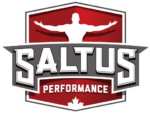CAFFEINE AND PERFORMANCE
After talking with other coaches and athletes, it seems that caffeine is one of the most underrated and underutilized training aids in strength and conditioning. This is surprising considering that the ergogenic benefits of caffeine supplementation are well documented in the literature. Caffeine is taken as a pre-activity supplement in order to enhance performance outputs during training or competition, and it is one of the only supplements used to increase performance for both aerobic and anaerobic activities (Baechle & Roger, 2008). It is one of the most widely available and affordable drugs in the world. As a result, competitive athletes and strength coaches may want to consider adding caffeine to their sports nutrition and supplementation recommendations in order to maximize the training, recovery and physiological adaptation processes.
POWER, AND ENDURANCE
Caffeine contributes to performance enhancement on all portions of the power-endurance spectrum. There are several potential mechanisms at work but the most basic premise is that is that caffeine increases the strength of muscular contractions at the molecular level by facilitating the release of calcium from the sarcoplasmic reticulum, thereby lowering the calcium threshold required for actin-myosin cross-briding (Nehlig, Daval, and Derby,1992). This is vital, because the number of cross-bridges that are attached to actin filaments at any given time dictates the force production of a muscle (Baechle & Roger, 2008). As a result, caffeine increases an athlete’s ability to produce force in both competition and training. Research has also shown that caffeine can increase the endurance capabilities during long-duration training or competition (Ganio, Klau, Casa, Armstrong, and Maresh, 2009). This is because caffeine is thought to increase fat utilization, which spares muscle glycogen, the body’s primary and preferred fuel source for physical activity (Spriet & Graham, n.d.). This has the effect of delaying the onset of fatigue, allowing an athlete to train longer before exhaustion.
ALERTNESS AND RECOVERY
Caffeine can increase mental clarity and focus (McDaniel et al, 2010). This is because of caffeine’s properties as a stimulant, which has a direct effect on the central nervous system, increasing resistance to fatigue, alertness and focus. This increased level of cognitive function can be helpful in both competition and training scenarios. There is also research to suggest that taking caffeine post-training enhances recovery. A study by Pedersen et al (2008) showed that caffeine enhances the replenishment of glycogen stores by 66% when caffeine was ingested with their meals post-exercise. Further, a study by Hurley et al (2003) showed that caffeine may be effective at reducing perceived muscle soreness in the days following resistance training. These cumulative effects contribute to an elevated state of readiness for subsequent training bouts.
POTENTIAL SIDE EFFECTS
There are a number of potential side effects when supplementing with caffeine, though most can be managed with preventative measures. The first concern is overstimulation. If an athlete is unaccustomed to caffeine, they may experience symptoms such as anxiety, restlessness and insomnia due to the stimulatory effects of the drug (Baechle & Roger, 2008). The second potential concern is that caffeine is a diuretic. As a result, there is a potential risk that excess or unaccustomed consumption may lead to dehydration, which would in turn increase the risk hydration-related performance issues. The severity of this side effect is exacerbated in high-temperature environments, and adequate hydration in these situations is critical. Thirdly, caffeine may act as a laxative, and may cause gastro-intestinal discomfort or bowel movements (Baechle & Roger, 2008). This may compound the diuretic effects, and further dehydrate the body. Fourth, caffeine is physiologically addictive (Baechle & Roger, 2008) and an athlete may experience withdrawal symptoms including sluggishness, irritability, and headaches. Fifth, caffeine interferes and negatively affects the body’s ability to absorb certain vitamins and minerals, such as calcium, iron, magnesium, sodium, phosphate, potassium as well as A and B vitamins (Johnson, 2014).
RECOMMENDATIONS
To prevent adverse effects, it is recommended that athletes begin experimenting with caffeine supplementation in small doses, particularly if they do not regularly consume caffeine. The generally recommended dosage in the literature is 3-9 milligrams per kilogram of bodyweight (Spriet & Graham, n.d.), with greater adverse affects appearing in quantities exceeding 9 mg/kg (Baechle & Roger, 2008). Caffeine should also be avoided late at night, so to avoid negatively affecting sleep quality. Furthermore, athletes who are supplementing with caffeine should ensure they are adequately hydrated, and also administer their dose well in advance of training or competition to allow for time to use the restroom and allow for an uninterrupted training session or an undisturbed competition in case of a laxative reaction. Athletes may also consider consultations with sports nutritionists in order to ensure that the caffeine consumption is not negatively affecting performance by causing vitamin and mineral deficiencies. Lastly, if an athlete is cycling off caffeine but is accustomed to the routine use of caffeine during training, they should reduce dosages gradually in order to prevent withdrawal symptoms, which may negatively affect performance.
CONCLUSION
In summation, the body of research in strength and conditioning shows that caffeine has an ergogenic effect that may increase speed, power, and endurance, as well as increase the rate recovery between training sessions. While the mechanisms may be somewhat unclear, the potential benefits of caffeine use as a performance enhancer during training greatly outweigh any potential risks, which can be mitigated by smart and progressive administration of the drug. As a result, strength coaches and athletes would be wise to take advantage of the potential training and adaptation enhancements that caffeine provides.
